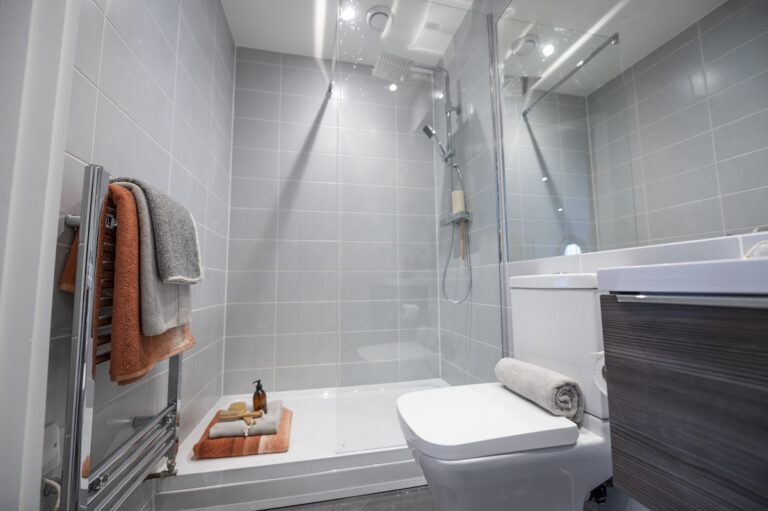
Owning a property under a leasehold agreement essentially gives you the right to occupy the specified property for a longer period of time than a traditional tenancy. Under the new Affordable Homes Programme, the UK government has now decided that leases are to be extended to over 900 years as standard. However, it is generally recommended to extend the lease on your home if it falls below 90 years. So, how can you extend your lease?
If you own 100% of your home, you will need to serve a formal request for an extension on your lease to your housing association. For those that own a shared ownership property, the process can be more complex, and an informal lease extension must be agreed to.
Keep reading to find out more about how you can receive a leasehold extension on your home.
Most housing association leases have been historically granted for either 99 or 125 years and, when a property is sold, a new lease is not created; the lease is instead assigned to the new owner. The number of years your lease is granted for will be set out in the lease particulars and on the land registry title documents. The value of the property can reduce when there are fewer than around 80 years left on the lease, which can make it difficult to remortgage or sell your home.
However, if you own 100% of your property then you have a statutory right to extend your lease, provided you meet the eligibility criteria detailed below. For a flat, a lease extension adds 90 years to the remaining term of your lease. For a house, 50 years are added to the lease.
In order to be eligible for a lease extension you must be the long-leaseholder and hold a lease with the following:
Receiving an extension on your lease will require a different process depending on how much of your property you own. The two scenarios are described below.
100% owners should follow the Statutory Lease Extension route in accordance with the procedure laid down in the Leasehold Reform, Housing & Urban Development Act 1993 (you will need to serve Formal Notice in accordance with the Act). Please note your solicitor should check in the first instance to confirm that we are the Freeholder/Competent Landlord before serving the Notice.
Shared ownership homeowners do not have a statutory right to extend a lease, but we have a Voluntary policy in place to allow you to do so. You would receive 90 years added on to the remaining term of your lease. Lease extensions for shared ownership properties have a number of conditions that must be considered before an extension can be agreed to, including:
It is important that you consider the costs involved before deciding to extend your lease, as we make a charge to cover the cost of providing a service to you. To receive an estimation of the cost of extending your lease, use The Leasehold Advisory Service’s online calculator, or contact a member of our team.
If you are looking for a Shared Ownership lease extension, we are able to offer a voluntary lease extension for our customers. To apply, simply contact our team by emailing salesservices@plumlife.co.uk. Alternatively, submit an enquiry today to find out more.
A voluntary lease extension should take no more than three months. A Statutory lease extension follows strict timescales given through The Leasehold Reform, Housing & Urban Development Act (1993). To find out more or to apply, please contact us by email at salesservices@plumlife.co.uk. You can also visit the Lease Advice website for impartial advice and to speak with a legal representative about your options.
Typically, for properties that are purchased under a Shared Ownership agreement, the lease agreement will allow the leaseholder to purchase additional shares in their property. It is important to check this when you first receive a lease agreement. This process is known as staircasing, and additional shares can often be purchased up to 100% ownership.
| Cookie | Duration | Description |
|---|---|---|
| cookielawinfo-checkbox-analytics | 11 months | This cookie is set by GDPR Cookie Consent plugin. The cookie is used to store the user consent for the cookies in the category "Analytics". |
| cookielawinfo-checkbox-functional | 11 months | The cookie is set by GDPR cookie consent to record the user consent for the cookies in the category "Functional". |
| cookielawinfo-checkbox-necessary | 11 months | This cookie is set by GDPR Cookie Consent plugin. The cookies is used to store the user consent for the cookies in the category "Necessary". |
| cookielawinfo-checkbox-others | 11 months | This cookie is set by GDPR Cookie Consent plugin. The cookie is used to store the user consent for the cookies in the category "Other. |
| cookielawinfo-checkbox-performance | 11 months | This cookie is set by GDPR Cookie Consent plugin. The cookie is used to store the user consent for the cookies in the category "Performance". |
| viewed_cookie_policy | 11 months | The cookie is set by the GDPR Cookie Consent plugin and is used to store whether or not user has consented to the use of cookies. It does not store any personal data. |